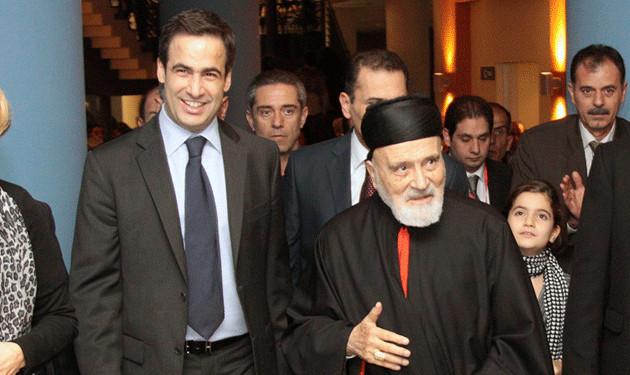By Michel Moawad
The age of the cedars cannot be measured in years. They’re timeless; as old as Lebanon, deep-rooted in both world and Christian history with their memory stamped more than 70 times into the Old Testament.
The same could be said of Maronite Patriarch Nasrallah Butros Sfeir, the head of the Antioch church and a pillar of Lebanon’s second independence. The bearded patriarch who, hiding behind his serene smile and hawkish stare, shouldered the sufferings of the Maronite community is as symbolic of Lebanon as the ancient cedars.
No patriarch, living or dead, experienced what Sfeir had during his 26-year tenure. Since his elevation to head of the Maronite Church in 1986 until 2011, the patriarch witnessed war, inter-Lebanese conflict, and horrible intra-Christian fighting that ended in either the exile or imprisonment of many representatives of the Lebanese Christian community.
Like his predecessors throughout the history of the Maronite church, however, the 76th patriarch overcame these obstacles to lead the movement that liberated Lebanon from the suzerainty of Syrian occupation. Following the withdrawal of Israeli forces from south Lebanon in 2000, the Lebanese set their sights on their next challenge: removing Syrian forces. From its genesis as an expression of Lebanese will at the Qornet Chehwan gathering to its full apotheosis resulting in the Cedar Revolution, Lebanon finally saw their much sought after dream of independence finally achieved on April 26, 2005.
A man of fierce resolve and a patriot of liberty, the Patriarch maintained that if Christians were to choose between freedom and coexistence, they would choose the former without hesitation. As a supporter of the National Pact, he embraced the Taif Accord and stood firm against those who rejected or obstructed the implementation of the agreement.
A staunch advocate of peaceful Christian-Muslim coexistence, the patriarch forged ahead with national unity to pave the way for Lebanon’s second independence and defend its national sovereignty. Rare are those who managed to misguide the Patriarch or to force him to betray his principles. All endeavors designed to weaken his resolve were met by failure. While he proved himself an astute statesman and active listener, when he spoke, his words carried enormous weight and were often regarded as a road map for the future.
While his positions were strong, resolute, and based on a genuine earnestness forged through principled moral authority, he was not afraid to ruffle feathers and could spark disagreements that drew fire from Syria’s allies. Campaigns to demean, misrepresent, or slander the Patriarch and his positions, however, always faded into irrelevance as the clarity of his position was the strength that fortified it. “We said what we said,” to quote his often used mantra.
The Lebanese have been blessed to know two saints in their time: the late Pope John Paul II who loved Lebanon and its Patriarch, still living among us. How could I not feel this special bond with the man who named martyred President Rene Moawad as one of five candidates for the presidency in 1988, entrusting him to restore the country’s sovereignty? How could I not feel this special bond with the Patriarch who guided me when I began my political career as a member of the Qornet Chehwan gathering?
Like the Cedars, whose importance is derived from their strength both symbolically and historically, so too does the Patriarch invoke the image of the mighty tree. His wise leadership has proved that he too is born of the strength of time. The mighty “Patriarch of Cedars” or “Cedar of Patriarchs” who always remained implacable in the face of insurmountable odds. When once asked if he planned to visit the Syrian presidential palace, he replied: “Where is it located?” Not because it reflected a poor knowledge of geography but because he has a deep and abiding sense of history.
On his birthday, we ask God to grant our blessed Patriarch vitality in order that he might one day bear witness to a time when Lebanon may see “better days than these miserable days.”







 العربية
العربية